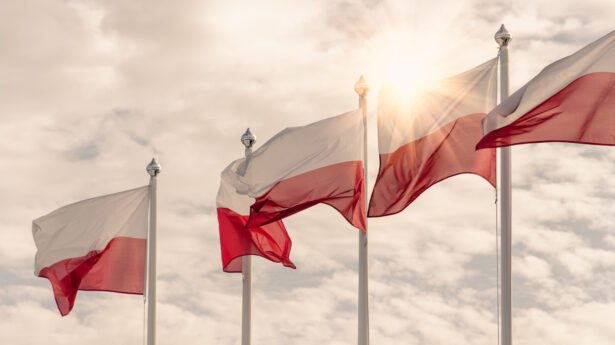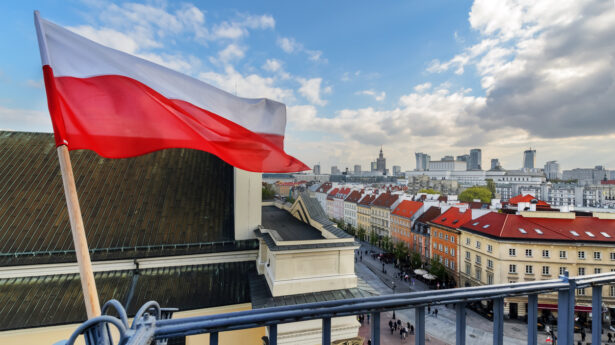The Unitarian Universalist Service Committee advances human rights through grassroots collaborations.

By on May 25, 2023
Since Russia’s full-scale invasion of Ukraine in February 2022, more than 62,000 people have died, nearly 60,000 have been injured, and roughly 14 million have been displaced. UUSC immediately mobilized its resources in support of those who were impacted by the invasion, culminating in 10 partnerships with organizations in Eastern Europe. All of these organizations are committed to helping communities facing compounding forms of oppression during this conflict—meaning we focus our resources on communities who are already facing severe oppression even before the invasion (people of color, people with disabilities, members of the LGBTQ+ community, etc.). This series will highlight those partners and the work they do.
Russia’s full-scale invasion of Ukraine has caused thousands of people to flee to Poland. A crisis usually begets other crises, and this situation is no different. With a huge influx of migrants and refugees, the institutions and organizations that would typically receive them are under historic strain. There are many legal processes that have to be engaged for those fleeing Russian violence that will enable them to live fulfilling, self-directed lives in Poland. However, connecting refugees with the right information and resources is often daunting.
This is where NOMADA comes in. NOMADA’s objective is to provide free consulting services and legal protections for migrants and refugees fleeing Russian aggression at the Polish-Belarusian border. Founded in 2009, the organization delivers its services to Wrocław, Lower Silesia, and detention camps in western Poland. After Warsaw, NOMADA’s home city of Wrocław has the second-highest population of Ukrainian refugees. As of now, 80% of its clients are from Ukraine.
NOMADA is a member of the Border Group, which also provides aid to those at the Polish-Belarusian border. While much of the organization’s work is focused on the Polish majority, NOMADA also works with migrants from Romania and supports all regardless of country, origin, identity, or legal status. Demonstrating this commitment, the organization hired a community worker from the Roma ethnic minority community who handles family assistance.
NOMADA carries out a number of activities to accomplish its goals. Consultants conduct bi-monthly community visits to educate those in migration on immigration law and provide translation assistance, among other services. Monthly, lawyers and interpreters deliver crucial information to Krosno Odrzańskie, a town near the German border that’s home to a detention center for people in migration. Without NOMADA’s support, the detainees would lack access to legal information that could potentially help their immigration case. These activities coincide with NOMADA’s support of activists on the Polish-Belarusian border.
UUSC’s relationship with NOMADA is crucial to helping these communities. Here are a few of the positive changes and outcomes NOMADA hopes to achieve with UUSC’s support:
- better adaptation and integration of arriving persons through information access;
- increased security among refugees;
- increased knowledge of migrant rights and obligations (health care, education, work, legalization of stay);
- easier access to services via partner organizations; and
- established contacts with local organizations, informal groups, community leaders, and institutions.
NOMADA hopes to purchase a van to convert into a mobile office. Given that many refugees are in small towns, having a mobile base of operations would allow the organization to deliver its services where people live.
Interested in supporting the work of Nomada and organizations like it? Donate to our Emergency Response Fund!

